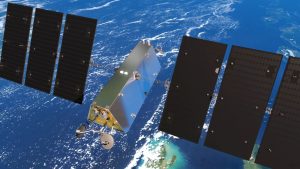The investment agreements are with the Government of Canada and the Government of Quebec.
The company said it now has all financing sources in place to fund the Lightspeed network. This includes the satellites, launch vehicles to deploy them, a terrestrial network of landing stations, and the business and operational support systems.
The Canadian government loan is for Canadian $2.14 bn ($1.57 bn) with a 15-year maturity. Also, it is receiving warrants for 10% of the common shares of Telesat LEO (based on an equity valuation for Telesat LEO of $3 billion). Telesat LEO, the official borrower, is a subsidiary of Telesat.
The Government of Quebec loan is for Canadian $400m ($294m) with warrants for 1.87%, in proportion to the smaller loan amount.
Telesat Lightspeed
Competing with the likes of SpaceX’s Starlink, Telesat plans to launch the first of its Lightspeed satellites in mid-2026.
Thales Alenia Space is building the broadband constellation, which is intended to deliver multiple terabits per second across the globe, providing secure, low-latency broadband services.
The Lightspeed network is described as providing a very high level of flexibility in capacity allocation, using active antennas that can dynamically refocus beams a thousand times per second, optical laser links between the satellites and processors able to address a range of bandwidths.
Progress
“We are pleased to conclude these funding arrangements with the governments of Canada and Quebec as we make strong progress on the build-out of the revolutionary Telesat Lightspeed constellation, the largest space program in Canada’s history,” said the President and CEO of Telesat, Dan Goldberg.
“Telesat Lightspeed will help bridge the digital divide in Canada and throughout the world, create and sustain thousands of high-quality jobs in Canada, deliver billions of dollars of investment in the Canadian economy, spur domestic innovation and exports, and ensure that Canada and Quebec are at the forefront of the rapidly growing New Space Economy.”
The Canadian government echoed this aim for Canadian technology sovereignty:
“Our government is focused on Canadians and today’s announcement with Telesat and MDA is our commitment in action,” said the Prime Minister of Canada, Justin Trudeau.
“Designed, manufactured, and operated in Canada – the Telesat Lightspeed satellite network will be the largest in Canadian history – creating thousands of jobs, growing our economy, and getting high-speed internet to Canadians. We’re putting Canada at the forefront of opportunity, with a fair chance for everyone to succeed.”
See also: Ofcom updates space spectrum strategy, grants NGSO licences
 Electronics Weekly Electronics Design & Components Tech News
Electronics Weekly Electronics Design & Components Tech News




